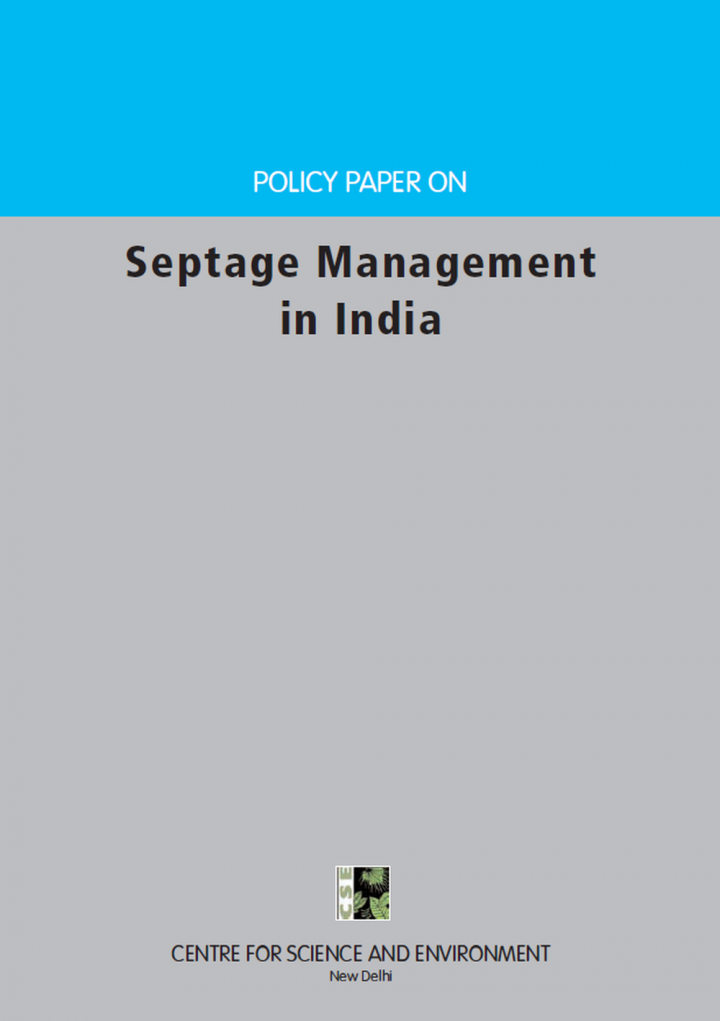Policy paper on septage management in India Various authors (2011)
With fast growing economy and urban population, the waste generation is steeply increasing in India. Due to paucity of resources, the local bodies, which are responsible for management of wastes, are not able to provide this service effectively. According to Centre Pollution Control Board (CPCB) study, out of 38254 MLD of sewage generated in India, the treatment facilities are available for 30% (11787MLD). The indiscriminate disposal of domestic wastewater is the main reason for degradation of water quality in urban areas, with negative impacts on health, the economy, and the environment. Major part of urban India is yet to be connected to the municipal sewer system and the people are mainly dependent on the conventional individual septic tanks. It is estimated that about 29% of the India’s population uses septic tanks (USAID ,2010).
Access to improved sanitation in urban India has risen but the management of onsite sanitation systems such as septic tanks remains a neglected component of urban sanitation and wastewater management. Septage, which is a fluid mixture of untreated and partially treated sewage solids, liquids and sludge of human or domestic origin, flows out of septic tanks and enters waterways or is generally disposed into nearest water body or low lying areas. This leads to serious health and environmental implications. This necessitates a welldefined regulation, guidelines, and management strategy for septage in the country. The septage management approach, discussed in this report, is an effort for assuring that septage is managed in a responsible, safe, and consistent manner across the states.
Bibliographic information
Various authors (2011). Policy paper on septage management in India Centre for Science and Environment (CSE), New Delhi, India
Filter / Tags
English

